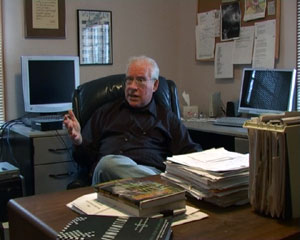Suzanne
Treister
2008-2010
|
Over
the Line Richard Thieme has worked extensively both with security and intelligence professionals and with the hacker community, enabling him to describe new emergent realities from an extraordinary perspective. After sixteen years in the ministry Thieme is currently an author and professional speaker at international conferences where his clients and audiences have included GE, Medtronic, Microsoft, the Thunderbird School of Global Management, the Pentagon, FBI, the US Secret Service, Los Alamos National Lab, and many hacker and security cons as well as business and educational forums.
Interview
questions: 1. Richard, what I'd like to discuss with you today is your involvement in issues of neuroscientific research for military purposes going on in the United States. Could you perhaps start by telling us how you first became interested in this area? 2. I'm interested to know how you have managed to get involved both with the hacker community and with security professionals? And can you say to what extent and how you are involved? 3. In terms of the frontiers of military research and development, can you give us a picture of the military-industrial-academic-scientific-media complex and what it is up to right now in terms of neuroscientific research? 4. Could you talk about specific ways memory might be encoded or managed or altered? 5. I know you talk about ethical questions which are raised by the emergence of new applications for war which will alter human identity by modifying memory, cognition, and core physical, emotional and spiritual capabilities. Can you tell us about other work, apart from Jonathan Moreno's, that is being carried out into the ethical implications of this research, and from which quarters is this coming and what is its effect? 6. Do you know of any organisations developing counter technologies to actual or perceived military mind control threats to the civilian population or otherwise? 7. Is that also why you write science fiction? 8. You have been quoted as saying, 'Near-total recall would pose new problems as would enhancement of affective processes related to religious experience'. How do you envision a future where genetic, chemical, and technological enhancements can trigger mystical experiences? How do you envision scenarios where these are used in psychological warfare? 9. So how then do you envisage war in the future? 10. In light of what you have been taking about today and taking into account that you are also a writer, what roles do you see for the future of cultural production in the arts? Do you have any thoughts about how the function of art in particular may change? 11. You have been accused by an intelligence professional as being in a 'wilderness of mirrors'. How do you compare where you are speaking from to where a conspiracy theorist might be speaking from? On what basis do you believe all information you have related today to be true? |

